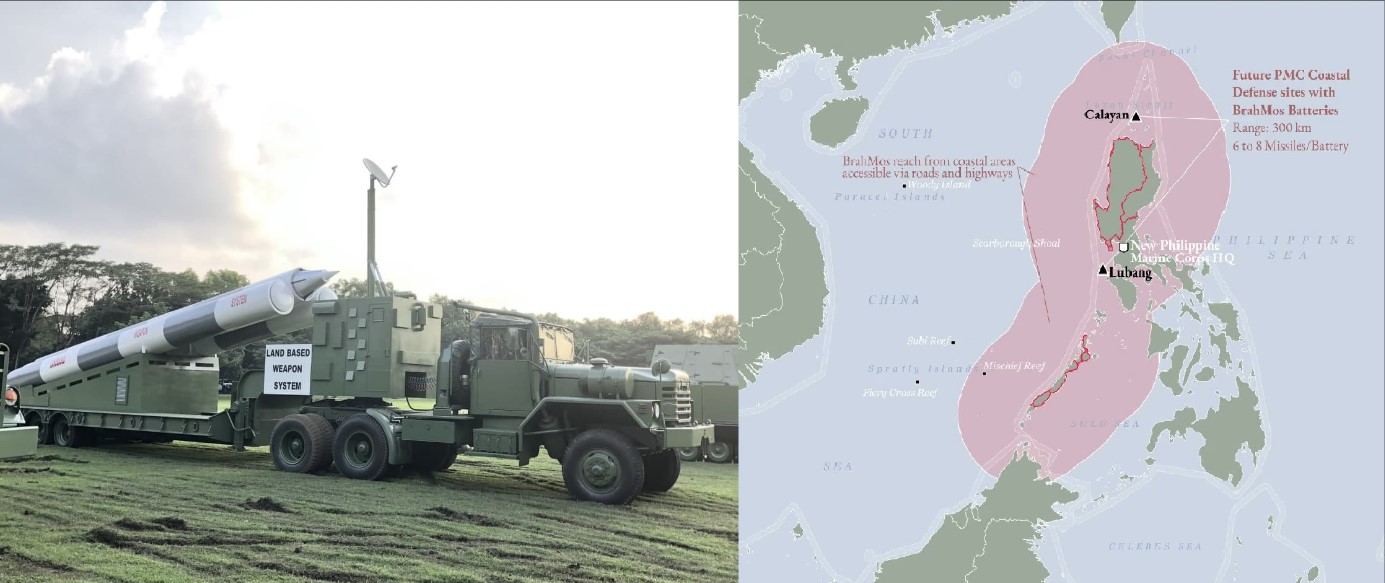Full Potential of Philippines BrahMos Missiles Limited by C4ISR Gap, Expert Warns

The Philippines' recent acquisition of the BrahMos supersonic cruise missile system from India has been celebrated as a significant leap forward for the nation's defense capabilities. This move marks a substantial step in bolstering the Philippines' military prowess, especially in the context of growing maritime tensions in the Indo-Pacific region. However, despite the advanced nature of the BrahMos system, its operational effectiveness may be severely constrained by the country's inadequate Command, Control, Communications, Computers, Intelligence, Surveillance, and Reconnaissance (C4ISR) infrastructure.
Ashley Tellis, a senior fellow at the Carnegie Endowment for International Peace and a former advisor to the U.S. Department of State, has voiced concerns over this issue. Speaking at the Defense News Conclave in New Delhi, Tellis highlighted the critical role of C4ISR in modern warfare. "The sale of BrahMos missiles is a significant boost to the security of the Philippines, but the country still lacks the necessary infrastructure to operate them effectively," Tellis stated.
C4ISR: The Backbone of Modern Military Operations
C4ISR capabilities are often described as the "nervous system" of modern militaries. They enable the seamless integration of various systems to collect, process, and analyze vast amounts of data from multiple sources. This information is then used to provide real-time situational awareness, facilitate decision-making, and enable precise targeting. Without a robust C4ISR infrastructure, even the most advanced weapon systems, like the BrahMos, can struggle to achieve their full potential.
For the Philippines, the lack of adequate C4ISR capabilities could significantly limit the effectiveness of the BrahMos missiles. These missiles, renowned for their speed, precision, and range of up to 300 km, are designed to deter potential adversaries and protect the country's maritime interests. However, without the ability to gather and process real-time intelligence and execute coordinated operations, the full capabilities of the BrahMos system may not be realized.
Strategic Implications and Potential Solutions
The strategic implications of the Philippines' acquisition of the BrahMos missile system are profound. The missiles are intended to deter any "external parties" from attempting to seize or occupy islands or reefs within the Philippines' Exclusive Economic Zone (EEZ) in the West Philippine Sea. With several Chinese military bases potentially within its target range, including the strategically important Mischief Reef, the BrahMos system could serve as a significant deterrent. However, the absence of a comprehensive C4ISR system could undermine these strategic objectives.
Ashley Tellis suggested that the United States and India could play a crucial role in helping the Philippines and other littoral nations in the Indo-Pacific region develop their C4ISR capabilities. "We need to start thinking about these things before the crisis happens, not after," Tellis emphasized. Proactive collaboration between these nations could enhance the operational effectiveness of the BrahMos missile system and strengthen regional security.
Enhancing the Philippines' Defense Infrastructure
For the Philippines, urgent investment in C4ISR infrastructure is imperative to maximize the potential of its newly acquired BrahMos missile system. Developing a robust C4ISR network would involve significant financial resources, technical expertise, and strategic planning. However, the long-term benefits in terms of enhanced national security and regional stability would be well worth the effort.
In conclusion, while the acquisition of the BrahMos missile system represents a significant advancement for the Philippines' defense capabilities, the country must address its C4ISR gap to fully leverage this advanced weapon system. By investing in C4ISR infrastructure and fostering international collaboration, the Philippines can enhance its ability to protect its maritime interests and contribute to regional security in the Indo-Pacific.
This multifaceted approach will ensure that the full potential of the BrahMos missile system is realized, providing the Philippines with a formidable deterrent against potential adversaries.


